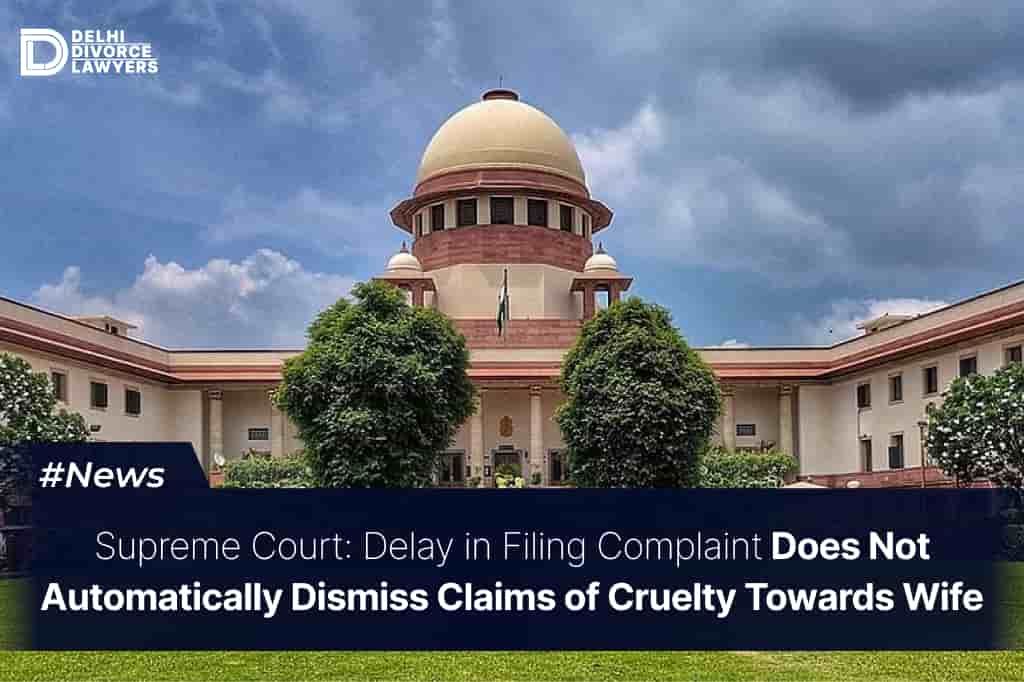The Court was dealing with a case where the father of a woman who died by suicide filed a complaint after her death, accusing her husband and in-laws of having subjected her to cruelty.
The Supreme Court on Tuesday highlighted that a delay in filing a complaint about marital cruelty does not automatically negate the occurrence of cruelty or harassment experienced by a woman at the hands of her husband or in-laws during the marriage [Jayedeepsinh Pravinsinh Chavda and Others v. State of Gujarat].
A Division Bench comprising Justices Vikram Nath and PB Varale made this observation while refusing to absolve the husband and in-laws of a deceased woman in a case involving allegations of cruelty under Section 498A of the Indian Penal Code (IPC).
The accused argued that the wife had never reported any cruelty or harassment during their twelve-year marriage, and the complaint was filed by her father only after her death by suicide.
However, the Court rejected this defense, stating that the absence of a complaint during the twelve years of marriage does not conclusively prove that cruelty or harassment did not occur.
The appellants’ argument that the deceased had not made a single complaint for cruelty or harassment against the appellants in the twelve years of marriage cannot be sustained. Merely because she did not file any complaint for twelve years does not guarantee that there was no instance of cruelty or harassment,” the Court observed.
The Court, however, acquitted the accused of charges related to abetment of suicide.
It concluded that there was no direct link between the allegations and the woman’s suicide, as the primary claims of cruelty—such as being coerced to sell her ornaments and subsequently subjected to harassment—occurred at least a decade prior to her death.
…selling of gold ornaments and the same was followed by discord and harassment upon their demand, even if true, do not reflect any intention to instigate, incite or provoke the deceased to commit suicide. Mere harassment and such issues between the wife and her husband along with the in-laws do not appear to create a scenario where she was left with no option other than to end her life. There is, therefore, absence of mens rea to instigate suicide of the deceased persons,” the Court said.
The Court was hearing an appeal filed by the husband and his family members, challenging the Gujarat High Court’s decision to deny their discharge from charges under Sections 306 (abetment of suicide), 498A (cruelty), and 114 (abetment) of the Indian Penal Code (IPC).
The appellant-husband’s wife had died by suicide approximately twelve years into their marriage.
After her death, her father asserted that his daughter had suffered both physical and mental abuse and had been forced to sell her ornaments, which were given to her as streedhan (dowry) at the time of her marriage.
He further claimed that his daughter was subjected to physical and mental harassment whenever she asked for the return of her ornaments.
The father alleged that his daughter’s suicide was the result of ongoing harassment by her husband and in-laws.
The accused initially contested the first information report (FIR) filed against them, but the High Court rejected their plea. A subsequent appeal to the Supreme Court was later withdrawn.
The accused then filed a discharge application before the Sessions Court, which was also rejected. This decision was upheld by the High Court, leading the accused (appellants) to approach the Supreme Court again.
The Court partially allowed the appeal, acquitting the accused of the charges related to abetment of suicide. However, it chose not to dismiss the charges of cruelty against them.
‘From a perusal of the FIR, findings of the Investigating Officer in the chargesheet as well as the statements of the deceased’s cousins recorded during investigation prima facie indicate that the deceased was subjected to physical as well as mental cruelty by her husband and the in-laws,” the Court observed.

